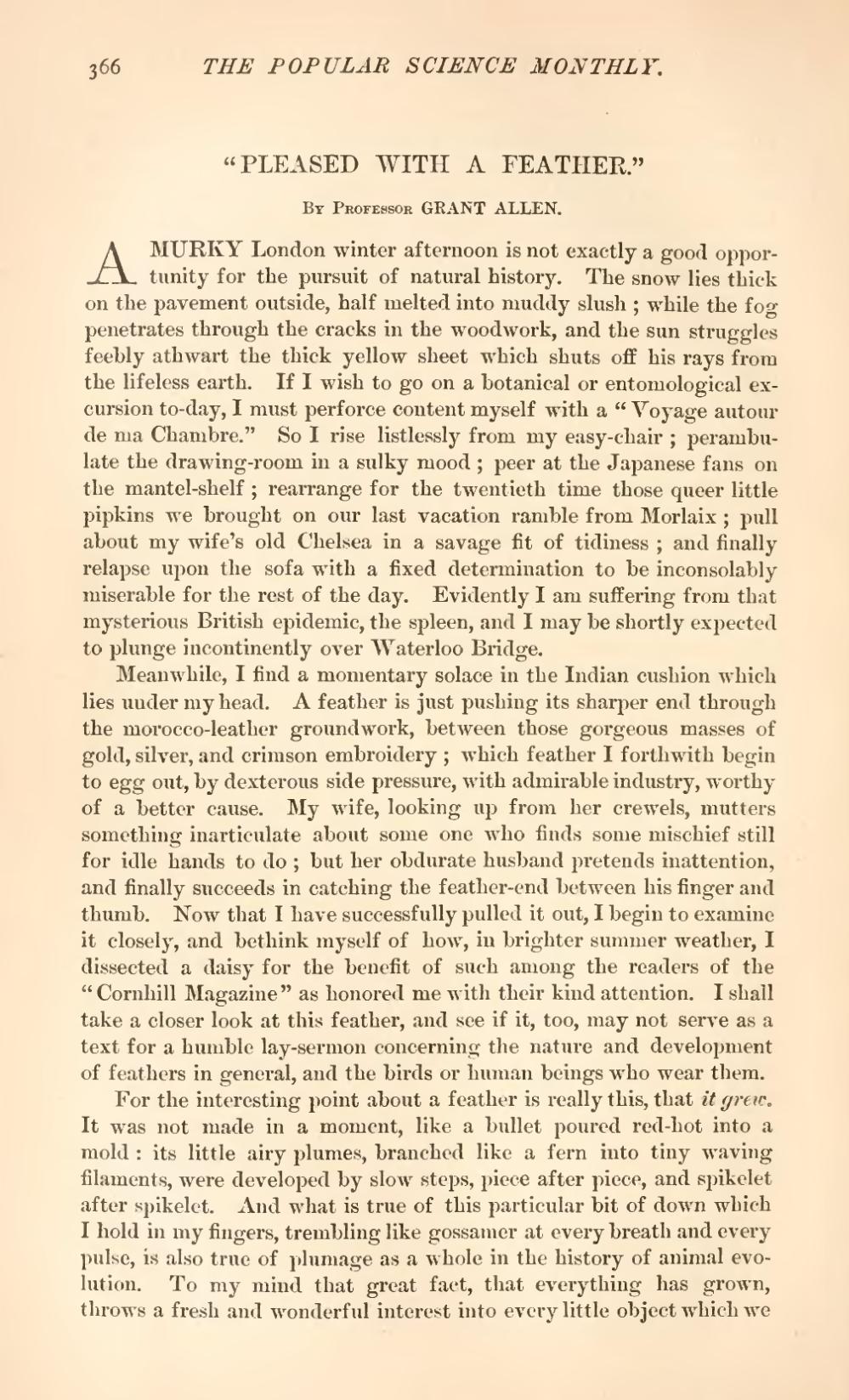| "PLEASED WITH A FEATHER." |
By Professor GRANT ALLEN.
A MURKY London winter afternoon is not exactly a good opportunity for the pursuit of natural history. The snow lies thick on the pavement outside, half melted into muddy slush; while the fog penetrates through the cracks in the woodwork, and the sun struggles feebly athwart the thick yellow sheet which shuts off his rays from the lifeless earth. If I wish to go on a botanical or entomological excursion to-day, I must perforce content myself with a "Voyage autour de ma Chambre." So I rise listlessly from my easy-chair; perambulate the drawing-room in a sulky mood; peer at the Japanese fans on the mantel-shelf; rearrange for the twentieth time those queer little pipkins we brought on our last vacation ramble from Morlaix; pull about my wife's old Chelsea in a savage fit of tidiness; and finally relapse upon the sofa with a fixed determination to be inconsolably miserable for the rest of the day. Evidently I am suffering from that mysterious British epidemic, the spleen, and I may be shortly expected to plunge incontinently over Waterloo Bridge.
Meanwhile, I find a momentary solace in the Indian cushion which lies under my head. A feather is just pushing its sharper end through the morocco-leather groundwork, between those gorgeous masses of gold, silver, and crimson embroidery; which feather I forthwith begin to egg out, by dexterous side pressure, with admirable industry, worthy of a better cause. My wife, looking up from her crewels, mutters something inarticulate about some one who finds some mischief still for idle hands to do; but her obdurate husband pretends inattention, and finally succeeds in catching the feather-end between his finger and thumb. Now that I have successfully pulled it out, I begin to examine it closely, and bethink myself of how, in brighter summer weather, I dissected a daisy for the benefit of such among the readers of the "Cornhill Magazine" as honored me with their kind attention. I shall take a closer look at this feather, and see if it, too, may not serve as a text for a humble lay-sermon concerning the nature and development of feathers in general, and the birds or human beings who wear them.
For the interesting point about a feather is really this, that it grew. It was not made in a moment, like a bullet poured red-hot into a mold: its little airy plumes, branched like a fern into tiny waving filaments, were developed by slow steps, piece after piece, and spikelet after spikelet. And what is true of this particular bit of down which I hold in my fingers, trembling like gossamer at every breath and every pulse, is also true of plumage as a whole in the history of animal evolution. To my mind that great fact, that everything has grown, throws a fresh and wonderful interest into every little object which we

